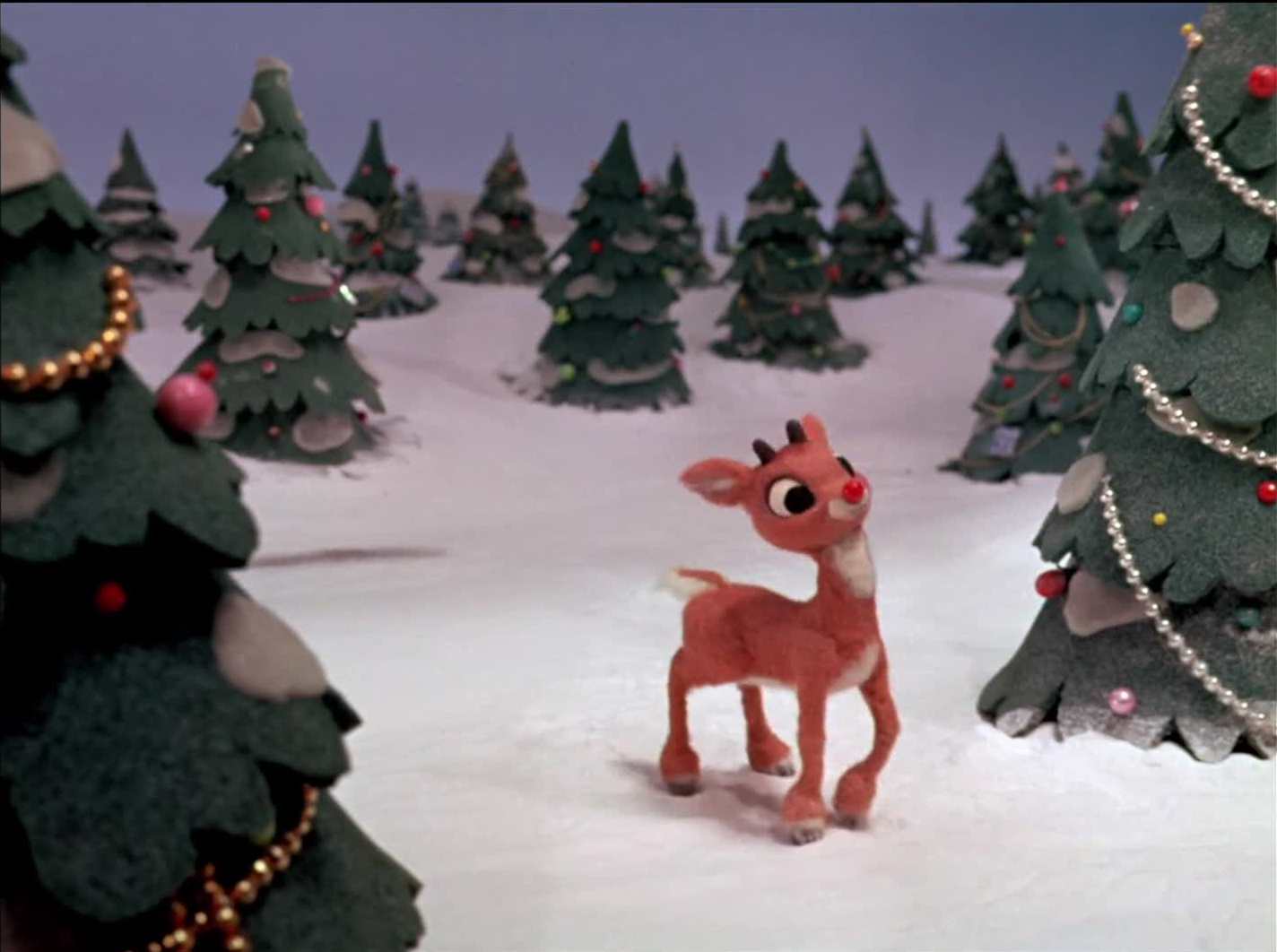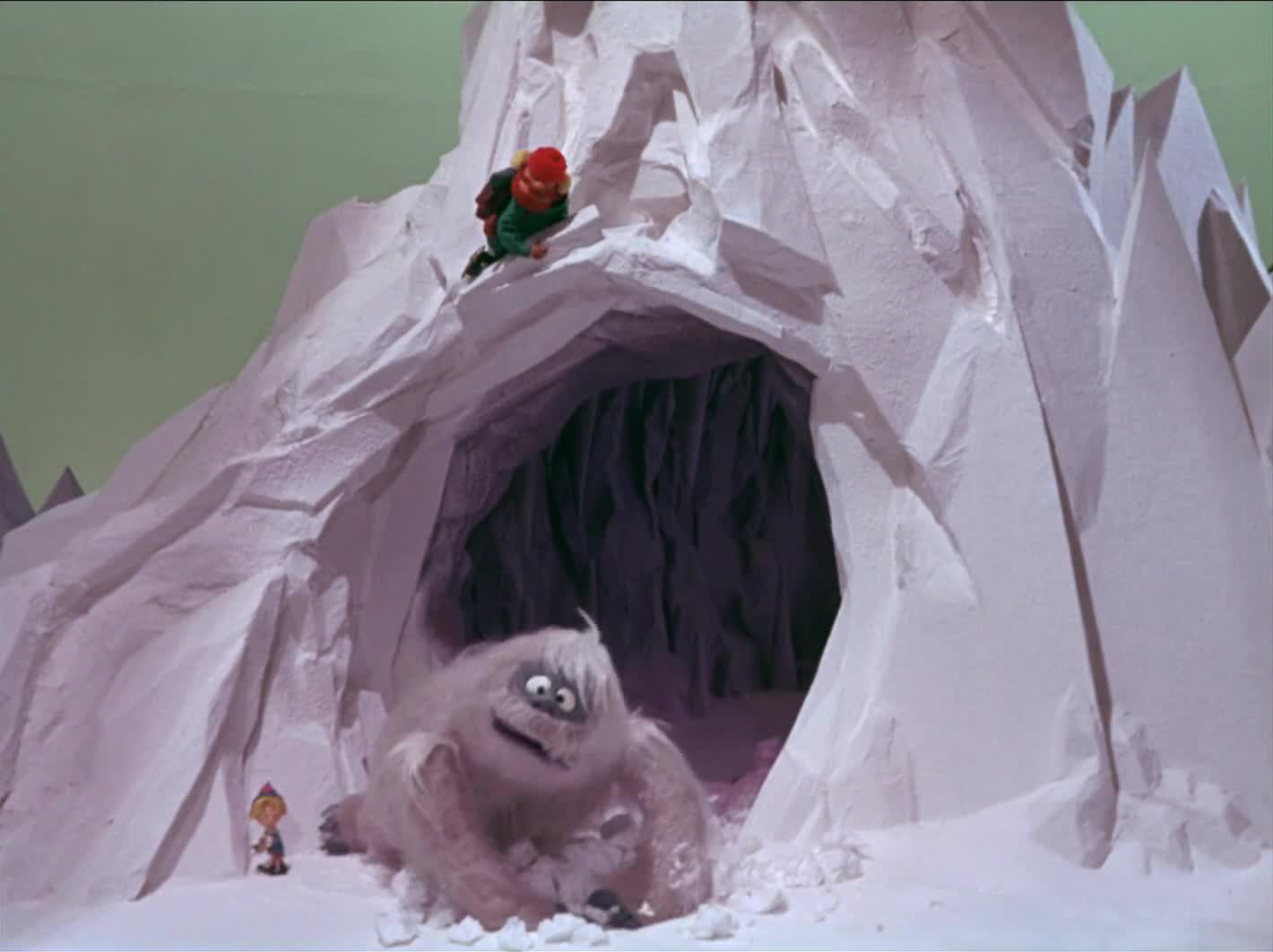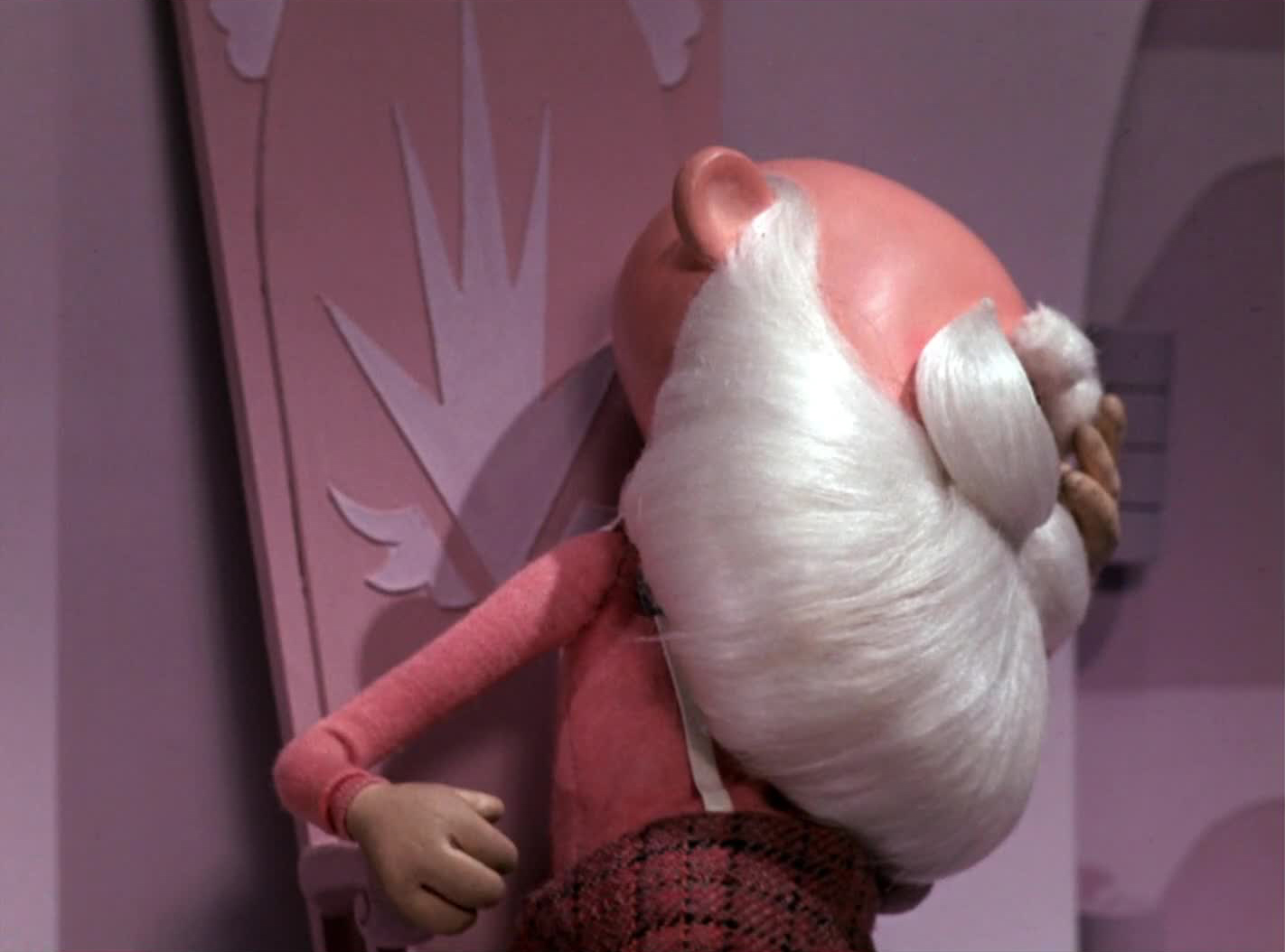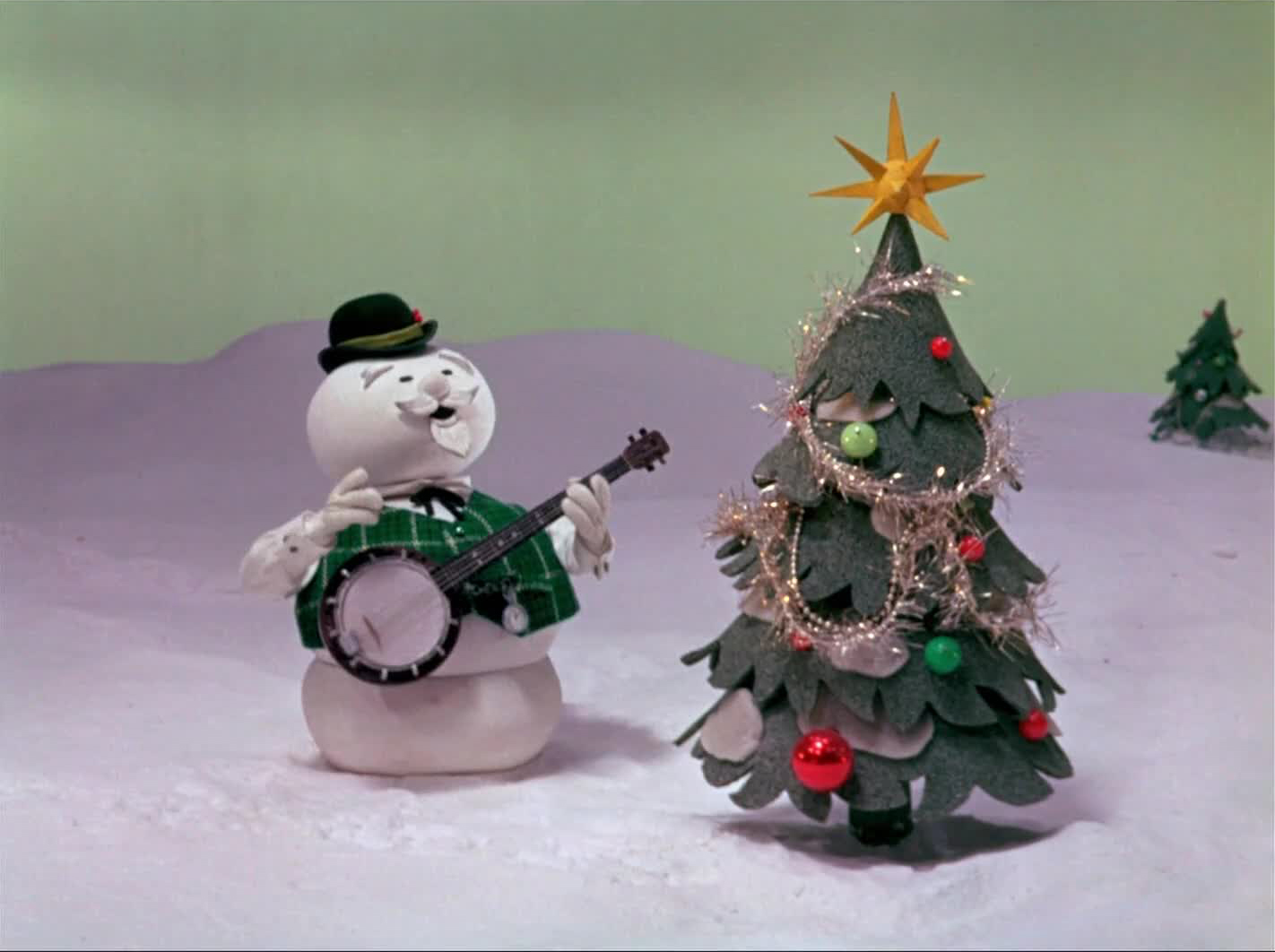50th Anniversary: Rudolph the Red-Nosed Reindeer
 Thursday, December 4, 2014 at 10:30PM
Thursday, December 4, 2014 at 10:30PM Tim here. December means two things: one of these is frantically trying to keep up with year-end awardage and last-minute qualifying releases, and we have that well-covered this month at the Film Experience. But it also means forcible nostalgia and hankering back to the traditions of childhood, and in this mode, we come to a very important anniversary this weekend. It was 50 years ago, on December 6, 1964, that NBC first aired the hourlong Rank/Bass special Rudolph the Red-Nose Reindeer, and thus created one of the most durable pop culture artifacts of the Christmas season.
Rudolph wasn't the first TV Christmas special, nor even the first one that was animated: Mister Magoo’s Christmas Carol had beaten to the latter punch by two years. Its enormous success meant that follow-ups were inevitable, so Rudolph was merely at the forefront of quite a large number of animated tales of finding the true meaning of the holiday and this and the other thing. And yet out of that wave of productions, virtually nothing, including Quincy Magoo’s turn in Ebenezer Scrooge’s shoes, has had the lasting cultural currency of Rudolph, which has been aired somewhere on American television for every single one of the 50 years of its existence. The fledgling Rankin/Bass (then working under the name Videocraft) made a cottage industry out of Christmas specials in the years following, but none of its follow-ups have become institutions in the same way as their first attempt.

Not a bad history for something with the scruffy DIY feel of Rudolph, animated in the form of felt-covered deer and obviously plastic elves making their stop-motion way across miniature styrofoam sets. There’s a definite charm to this, offering the feeling of invisible kids playing with toys. Which would also explain the somewhat nonsensical collage of story ideas that spill out one after the other, from the elf who wants to be a dentist to the gold rush prospector who knows all about abominable snow monsters and on and on in a sugar-fueled stream-of-consciousness rush. That’s as it should be; this is for kids, after all, and positioning itself as a frantic game of make-believe suits it better in that regard more than e.g. the melancholic thoughtfulness of A Charlie Brown Christmas, a special that grows deeper with age.

That being said, it’s still a piece that needs to be watched through nostalgia goggles if we’re going to overlook some of its jerkier movement, or the kind of dead, flat way that all the elves move their eyes and their little painted mouths. Nor does the special entirely stay clear of the social mores of the 1960s. Not that it was trying to, of course. But when the heroes talk about leaving a dangerous situation for the sake of protecting the women, it clangs in a way that certainly knocks a chunk of timelessness off.
Its age also, maybe, explains its weirdly pervasive sense of meanness: for something so brightly colored and paced, with its litany of upbeat songs, Rudolph has some darkness to it that I had forgotten in the many years since I watched it last. All of the other reindeer don’t just call Rudolph names, they psychologically torment him above and beyond normal taunting. Even his parents recoil from him in disgust. And Santa, that right jolly old elf, is a bigger bastard than the rest put together, dismissively rejecting Rudolph as some sort of hideous accident not even worthy of the energy it would take to scorn him.

Honestly, that ends up working out for the best: it gives the special a kind of absurdly merciless tang that banishes any risk of treacly sentiment. Besides, the whole thing is so fantastic and surrealist that the extremity of the offhand bullying fits in with the general sense that everything is more intense and heightened in this fantasy world. It’s all a little more weird than it feels something that has been anointed as a classic for so long ought to be: there’s less of the surface-level warmth and heart of the other long-lived Christmas specials from around the same era. Parts of it haven’t aged so very well, but that weirdness certainly has, giving Rudolph a sharp edge of unhinged comedy that feels unlike anything that has been passed on through so many generations of parents and children. At any rate, it doesn’t feel musty, and that’s pretty impressive for a television mainstay at the half-century mark.




Reader Comments (5)
Watching this as a little sissy kid in the '60s, I could secretly relate to Rudolph the "different" reindeer!
By pure coincidence: "Your different ideas were scary and dangerous, but now that your skills can benefit us, welcome home!"
This movie/the song it's based on has to be, like, Exhibit A for that.
Man, I love this thing so much. For me, at least, it's in great part because of the music. It's so memorable and sweet, and especially sticks in kids' heads. Love watching this with my nieces.
Tim, you've hit the nail on the head. This is a weird, timeless-but-not, sweet-but-mean, clunky-but-beautiful Christmas special and I don't know if it would have lasted as long as it has if not for all of those conflicting facts. Time to dust off my DVD for a rewatch!
Santa is the biggest shit ever in this